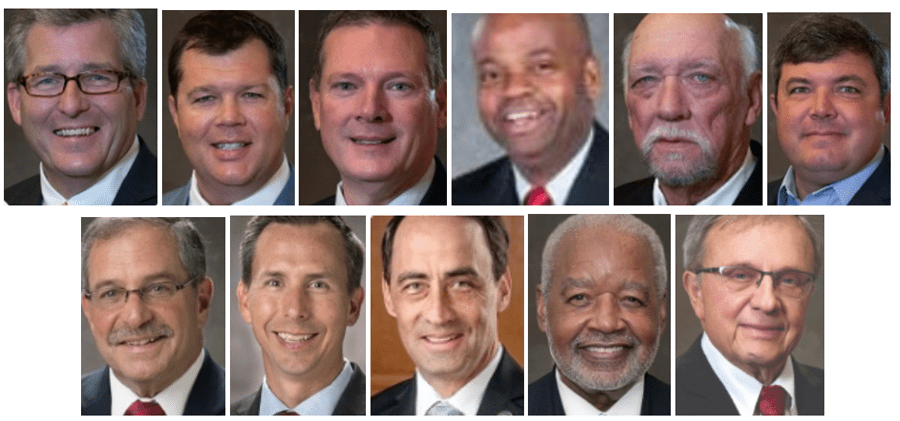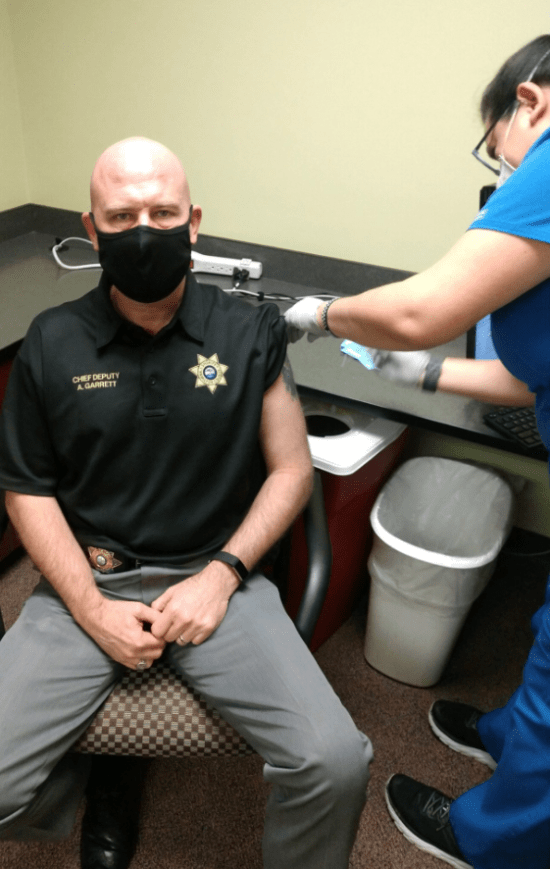County votes to surveil all travel with ‘free’ LPRs, ignoring TN probable cause rule
Promise to 'mitigate crime' draws 100% vote in conservative Hamilton County, Tenn., home to progressive WEF-allied Chattanooga




CHATTANOOGA, Tenn., Thursday, Nov. 16, 2023 — Hamilton County sheriff Austin Garrett persuades all county commissioners to vote to receive F$1.184 million from the federal government to pay Motorola Solutions Inc. for 121 license plate readers to “mitigate crime” by private parties.
By David Tulis / NoogaRadio Network
LPRs like those set to be mounted atop poles are already in sheriff department cruisers, Sheriff Garrett says.
The sheriff says the cameras have a single purpose — checking if a car with a tag is stolen. Auto theft is the original basis of the so-called license plates under rear bumpers of cars sold by dealers to the public. Memphis St. Ry. v. Crenshaw, 165 Tenn. 536, 55 S.W. 2d 758 (1933). The purpose of the title and registration act is, inter alia, particularly to prevent the theft of motor vehicles, to prevent fraud and to facilitate title transfer. Reece v. State, 197 Tenn. 383 (1954). The plates are tax stamps, a proof-of-tax-paid to convert automobiles into motor vehicles under the state’s privilege enforcement (tax) system.
Sheriff Garrett says the database-linked scanners also can be assigned to search for a tag if a requested number is entered into a patrolling officers computer screen window.
The sheriff says he regrets the cameras had not been available in search for a missing woman, whose corpse was found near her motor vehicle in Meigs County.
Chattanooga will get 35 units. East Ridge will get 15, and Red Bank seven. Fifty-nine other units will scatter surveillance optics across the balance of Hamilton County 576 square miles.
Cmsr. Steve Highlander asks the sheriff to “alleviate *** concerns” of people “concerned that this could be possibly a big brother-type oversight throughout the county.”
I do understand and appreciate the concern, not only from the commissioner but anyone who asks questions about it. One, it’s administered by state of Tennessee. It’s passed the legal challenges through the state. We already use this technology *** . It’s in every patrol vehicle. It’s been very successful. It’s used across the country. We are using this technology to mitigate crime in our community.
One of the reasons I was elected by the people of this county was to be efficient, be a visionary and implement ideas and methods to reduce crime. This does that.
He offers two examples of LPR’s hitting upon a stolen vehicle near a state factory facility. “Those deputies’ job is to keep that school campus safe. Their job is to keep this county safe. Same as mine. I said last week that crime is mobile. It doesn’t stay in one place. Things that happen in this community travel across the state line. The same happens here. That’s an example of of this is being used for criminal activity. Since June, when we added this technology to our Axon program, we’ve intercepted 15 vehicles stolen or carjacked through a license plate reader.
“I’ll give you another one. Commissioner, I believe you attended this dear lady’s funeral. April of 2019, Ms. Adkins, a dear grandmother to her family, went missing.” She was found dead “near her vehicle,” a truck, near Decatur, Tenn., in Meigs County. The sheriff says detectives “methodically” traced her movement from private cameras up Highway 58, and went into Meigs to look for her. LPRs are on state routes such as 58.
“Had this technology been in place, we could have entered her tag number, we would’ve gotten hits on every camera along highway 58, and we might have found her and returned her to her family, alive.”
The unanimity of support for the surveillance system has very tiny cracks that the sheriff covers over with an oblique answer.
Cmsr. Greg Beck is skeptical of whether other parties have access to the data. Sheriff Garrett does not answer the question, stating: “Motorola is the approved and only vendor” for state government, that it holds data three months, and there is “no third party sharing of the information.”
Sheriff Garrett says “these have nothing to do with speed cameras, nothing to do with red-light cameras, period — nothing at all.” Cruisers have mounted LPRs since May, he says.
One commissioner says “when you buy a car you have to have a plate,” which is true to enter into commerce and to avoid abuse by police. “You give up the right to be surveiled or at least 30 years, or 50 or 80 or 100. You are just automating that process.”
The closest Mr. Garrett gets to the question of “privacy” is to point out no one in public has an expectation of privacy.
“Your car’s in the public eye,” Sheriff Garrett says. “You have no expectation of privacy on that tag. Inside your car you do. Inside your home you do. About your person you do — unless we have probable cause to search. Everyone in this room — it’s public record that you’re here. As you walk through the building and down the sidewalk, you’re in the public. You don’t have that expectation of privacy. *** The fact that I see John Doe walking down 600 Market St. is not surveillance; I’m observing it. I’m observing it. Your tag is the same thing. Your tag is there *** so we can identify who owns it.”
This response avoids the question of the generation of probable cause for any one person, and in what part of the automated process is there a gap in which the officer, discerning a crime having been committed, exercise discretion to discern he has probable cause to make an arrest.
Says Cmsr. Highlander, “We don’t want to allow any big government to take over. But we do want to be safe, and we appreciate your efforts.”
An attorney general opinion says “driving without insurance” is a secondary offense, but the system can be used to clue in deputies and corporation police as to whether a car is insured, insofar as the database is linked to the EIVS system run by the department of revenue. As yet, “failure to have insurance” is not on the hot list of purported crimes.
2 speak against
Greg Walser and Tonya Miller alone speak against the system. Mrs. Miller of East Ridge expresses concern that artificial intelligence will be involved and favors hiring more deputies rather than relying on technology. She says people “don’t like it,” that it may be legal, “but that doesn’t make it right.” Republicans who believe in limited government oppose, and incrementalism brings harms that start small and grow. She cites the spread of marijuana treatments.
The grant is to be used solely or LPRs, and for no other purpose if accepted, Sheriff Garrett says.



